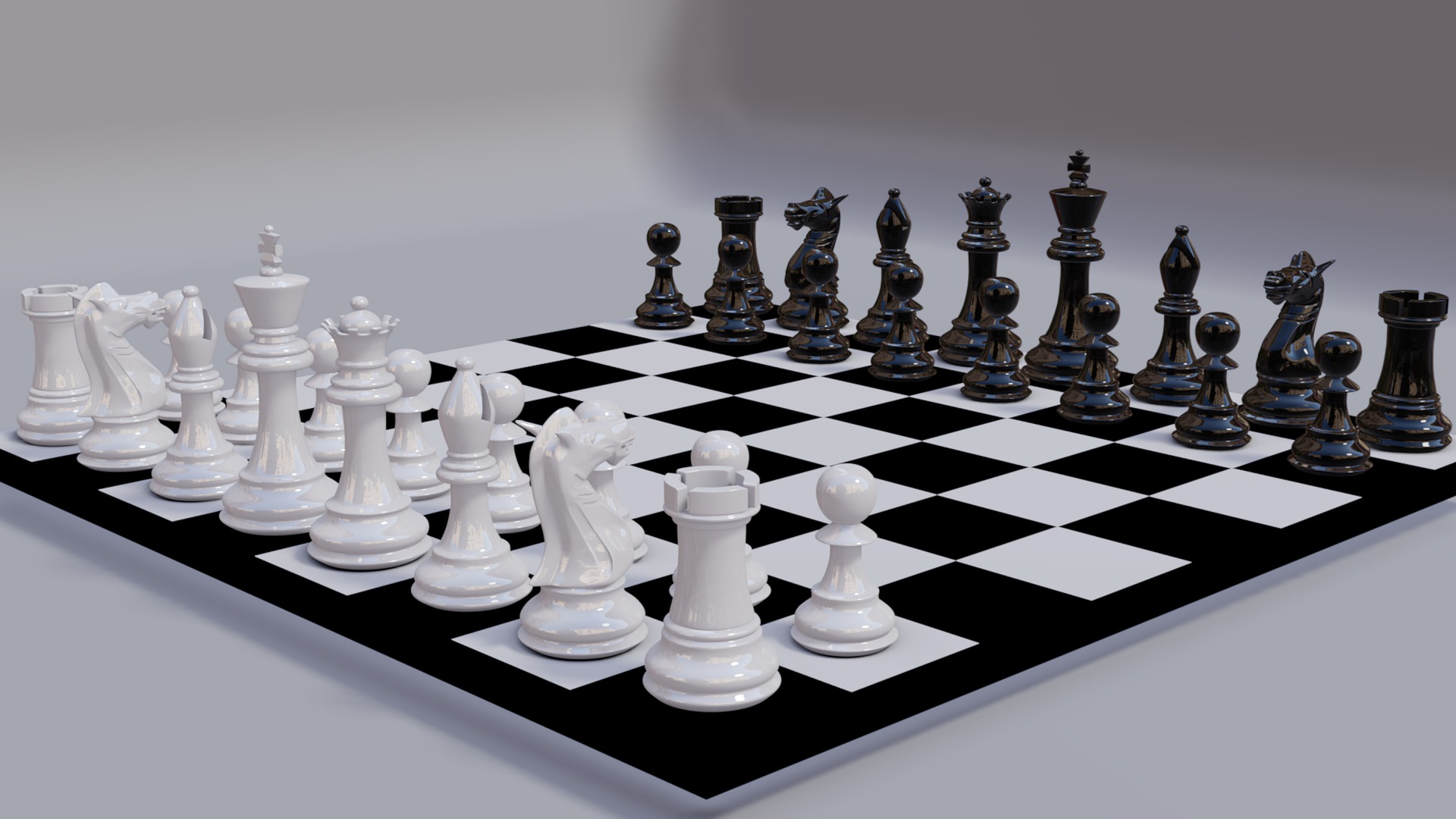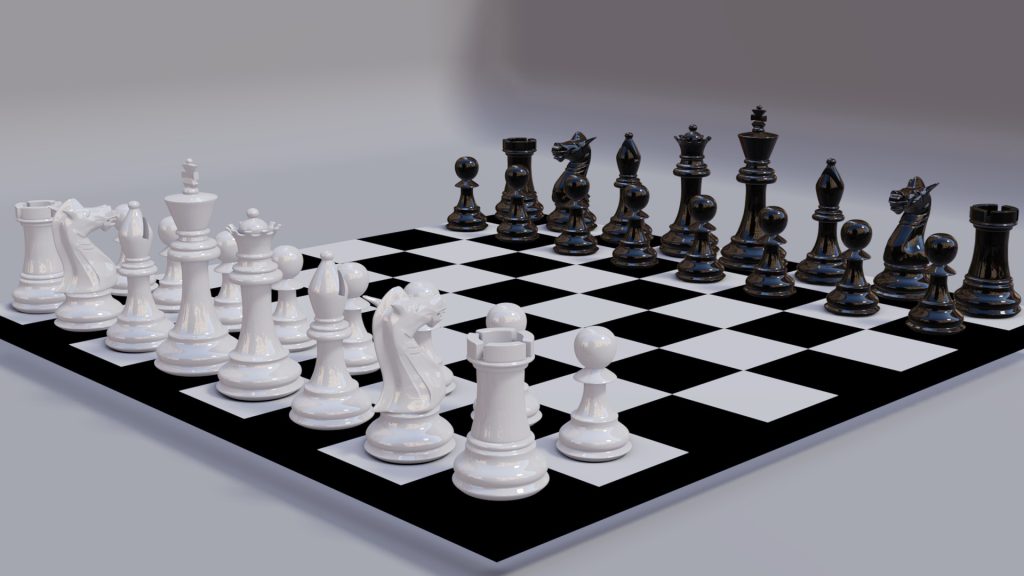Learn How to Play Chess Like a Pro: 10 Essential Checkmate Strategies by Oren Zarif
Ever wondered how the grandmasters of chess make it look so easy to win? With the right knowledge and practice, anyone can learn to play chess like a pro. This guide will cover 10 essential checkmate strategies that will help you become a chess master. Chess is a game of strategy, tactics, and planning. You must plan your moves ahead of time, analyze your opponent’s moves, and execute the best move for yourself. By learning the 10 essential checkmate strategies, you will be able to outwit your opponents and increase your chances of success. With these strategies, you will be able to make smarter moves, improve your game, and achieve more victories. So, let's get started and start mastering the game of chess!
The Pin Checkmate Strategy By Oren Zarif
The pin checkmate strategy is when you use a piece to obstruct or “pin” an enemy piece by controlling it with another piece. This will not only help you control a piece, but control an enemy king in a double bind situation. The pin checkmate strategy is often used when you are in a situation where you are one move away from checkmate. The pin checkmate strategy is a useful strategy to learn, as it is one of the first strategies you will learn. With practice, the pin checkmate strategy will become second nature, and you will be able to recognize when the opportunity to use it arises. The pin checkmate strategy is effective when you have a knight and a rook against a king and another piece. By using the knight to pin the enemy piece, you can use the rook to pin the king at the same time. The enemy king will be unable to move, which will leave you free to checkmate the king. If you are interested in the pin checkmate strategy, you must learn how to execute it correctly. With the right timing, positioning, and strategy in mind, you will be able to control your opponent’s piece and checkmate their king.
The Fork Checkmate Strategy – By Oren Zarif
The fork checkmate strategy is when you use a piece to attack two enemy pieces at once. This gives you control over both pieces and leaves your opponent with no option. When you use the fork checkmate strategy, you are attacking two pieces at once, which will leave your opponent with a fork in their strategy. The opponent will have to make the choice to defend one piece or the other. Once you have caused a fork in your opponent’s strategy, you will be able to checkmate the king with ease. For example, if you have a rook and a bishop and are attacking two pieces, your opponent will be forced to defend both pieces. Once your opponent has to defend two pieces, they will be unable to checkmate you because they will be too busy defending multiple pieces. The fork checkmate strategy is an incredibly powerful strategy to use, but you must learn how to use it correctly. You must know the right timing and positioning of your pieces in order to execute the fork checkmate strategy successfully.
The Discovered Attack Checkmate Strategy – By Oren Zarif
The discovered attack checkmate strategy is when you move a piece and discover an attack against the king. This strategy is used when you have a piece that cannot move. You can use a rook to checkmate a king when you have a bishop on the opposite side of the board. This is because the rook can attack the king from far away. The discovered attack checkmate strategy is used as a backup checkmate strategy in case your primary checkmate strategy does not work. If you are attacking with a bishop and a rook and fail to checkmate your opponent, you can use the discovered attack checkmate strategy to checkmate your opponent. It is an effective strategy to have in your back pocket if the primary checkmate strategy fails. If you want to master the discovered attack checkmate strategy, you must learn when to use it. You must know when a piece cannot move and when a discovered attack checkmate strategy is the correct strategy to use. The discovered attack checkmate strategy is most effective when you have a bishop on the far side of the board.
The Smothered Mate Checkmate Strategy
The smothered mate checkmate strategy is when you use a piece to trap another piece, usually the king. When a king is trapped, it cannot move, and you can checkmate the king with a piece that is nearby. The smothered mate checkmate strategy is a very common strategy that you will see in almost every match. It is a very effective strategy that will help you checkmate your opponent with ease. You can use the smothered mate checkmate strategy with a bishop, a rook, or a knight. This strategy is effective when you have a pawn on the other side of the board. You can use the pawn to trap the king and checkmate your opponent with a piece. Once you have trapped the king, it is only a matter of time until you checkmate the king because the king cannot move. If you have the smothered mate checkmate strategy in mind, you will be able to see when it is the correct moment to use it.
The Back Rank Mate Checkmate Strategy
The back rank mate checkmate strategy is when you use a rook to attack the back rank of the board. It is also called the long rank mate checkmate strategy. This is a very common checkmate strategy that you will see in almost every match. If you are attacking the back rank of the board, it is very difficult for your opponent to defend. You can use the back rank mate checkmate strategy when you have a rook and a bishop. This is because the rook will be attacking the long rank of the board, and the bishop will be attacking the short rank of the board. The bishop will pin a piece and leave you with a back rank mate checkmate strategy. The back rank mate checkmate strategy is not an effective strategy, but it is one of the easiest checkmate strategies to execute.
The Double Check Checkmate Strategy
The double check checkmate strategy is when you have a piece attacking the king and another piece attacking the king as well. This is an effective strategy when you have a rook and a knight. You can use the rook to attack the long rank of the board and the knight to attack the short rank of the board. Once you have a double check in place, there is nothing your opponent can do to defend. They must make a decision to either defend the king in the long rank or short rank, and they do not have enough time to do both successfully. This leaves you with an easy double checkmate. The double check checkmate strategy is an effective strategy that you must have in your back pocket. It is best to use the double check checkmate strategy when you have a good position for it. This means you are in a favorable position on the board and have a clear line of attack against the king.
The Scholar’s Mate Checkmate Strategy
The scholar’s mate checkmate strategy is when you use a queen to checkmate a king by attacking it from two sides at once. This is an incredibly difficult strategy to achieve on the board, but it is possible. You must have a queen, a bishop, and a knight to execute the scholar’s mate checkmate strategy. It is a very difficult strategy to achieve, but it is one of the most satisfying checkmate strategies to achieve. If you are a beginner, you should not try to use this strategy because it is far too advanced for a beginner. The scholar’s mate checkmate strategy is an effective strategy when you can use the right pieces in the right position. You must have a queen on the long rank of the board and a bishop and a knight on the short rank of the board. With this positioning, you can checkmate your opponent with ease because the king does not have anywhere to go.
The King’s Indian Defense Checkmate Strategy
The king’s Indian defense checkmate strategy is when you use a pawn to checkmate a king from the side of the board. This is one of the easiest checkmate strategies to achieve. It is one of the first strategies you will learn as a beginner. You can use the king’s Indian defense checkmate strategy with any piece, but it is most common with a pawn. You must have a pawn on the third row of the pawns. With this position, you can use the king’s Indian defense checkmate strategy by simply moving your pawn straight forward until it lands on the opponent’s king. This is an incredibly easy strategy to achieve, but it is also incredibly boring. You should use the

